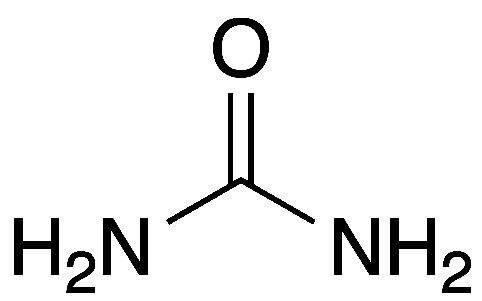
Oct . 18, 2024 09:36 Back to list
Water-Soluble Fertilizer Production with Balanced NPK 19-19-19 for Optimal Plant Growth
NPK 19-19-19 Water-Soluble Fertilizer An Essential Component for Modern Agriculture
The agricultural landscape has witnessed significant advancements over the years, driven by the need to improve crop yield, enhance soil fertility, and support sustainable farming practices. Among the various inputs available to farmers, fertilizers stand out as critical components in the cultivation of healthy and productive crops. NPK 19-19-19 water-soluble fertilizer has emerged as a staple choice for growers worldwide, renowned for its balanced nutrient formula and ease of application.
Understanding NPK Fertilizers
NPK fertilizers are named for their three primary nutrients Nitrogen (N), Phosphorus (P), and Potassium (K). Each of these elements plays a crucial role in plant growth. Nitrogen is essential for the synthesis of proteins and chlorophyll, which are vital for plant metabolism and photosynthesis. Phosphorus is critical for energy transfer and root development, while potassium strengthens plant resilience, contributing to water regulation and disease resistance.
The 19-19-19 designation indicates that this fertilizer contains 19% each of nitrogen, phosphorus, and potassium. This balanced ratio makes it particularly versatile and suitable for a variety of crops at different growth stages, from seeds to mature plants.
Advantages of Water-Soluble Fertilizers
Water-soluble fertilizers like NPK 19-19-19 offer several advantages over traditional granular options. Firstly, they dissolve quickly in water, allowing for immediate nutrient availability to plants. This rapid absorption is crucial for crop production, especially in situations where plants exhibit nutrient deficiencies that need quick correction.
Furthermore, water-soluble fertilizers facilitate efficient fertigation, a practice that combines fertilization with irrigation. This method not only optimizes nutrient uptake by plants but also reduces waste, as the nutrients are delivered directly to the root zone where they are most needed. Additionally, fertigation allows for more precise nutrient management, enabling farmers to tailor their applications based on specific crop requirements, soil conditions, and environmental factors.
Manufacturing NPK 19-19-19 Water-Soluble Fertilizer
npk 19-19-19 water soluble fertilizer factories

The production of NPK 19-19-19 water-soluble fertilizer involves several key processes. High-quality raw materials, including urea for nitrogen, phosphate rock for phosphorus, and potassium chloride for potassium, are selected to ensure optimal nutrient composition and solubility.
The manufacturing process typically includes blending, granulation, and coating stages. These steps are carefully monitored to maintain the desired nutrient ratios and achieve a consistent product. The final product is then subjected to rigorous quality control tests to confirm its solubility and effectiveness.
With an increasing demand for water-soluble fertilizers globally, many manufacturers have invested in sophisticated technology and research to enhance the efficiency and environmental impact of their products. Innovations in the formulation and production processes aim to reduce the solubility time and improve nutrient release rates, catering to the dynamic needs of modern agriculture.
Environmental Considerations
While NPK 19-19-19 fertilizers are essential for maximizing agricultural productivity, their use must be balanced with environmental sustainability. Over-application or improper timing can lead to nutrient runoff, contributing to water pollution and eutrophication in nearby water bodies.
Farmers and agricultural stakeholders are increasingly adopting integrated nutrient management practices that incorporate organic amendments and precision agriculture techniques. By combining water-soluble fertilizers with organic matter, such as compost or manure, they can improve soil health and reduce reliance on synthetic products without compromising crop yield.
Conclusion
NPK 19-19-19 water-soluble fertilizer plays a pivotal role in contemporary agriculture, providing essential nutrients that promote robust plant growth and high yield. Its versatility and ease of application position it as a preferred choice among farmers globally. However, responsible usage and environmental stewardship are critical to ensuring that the benefits of such fertilizers are sustainable in the long term. As agricultural practices continue to evolve, the demand for innovative and environmentally friendly fertilizers like NPK 19-19-19 is expected to grow, contributing to a more sustainable agricultural future.
-
Premium 10 10 10 Fertilizer Organic for Balanced Plant Growth
NewsJul.29,2025
-
Premium 10 10 10 Fertilizer Organic for Balanced Plant Growth
NewsJul.29,2025
-
Premium 10 10 10 Fertilizer Organic for Balanced Plant Growth
NewsJul.29,2025
-
50 Pound Bags of 13-13-13 Fertilizer for All Plants – Bulk & Organic Options
NewsJul.28,2025
-
High-Efficiency 15-30-15 Granular Fertilizer for Healthy Crops
NewsJul.28,2025
-
15-30-15 Granular Fertilizer for Optimal Crop & Lawn Growth
NewsJul.27,2025
